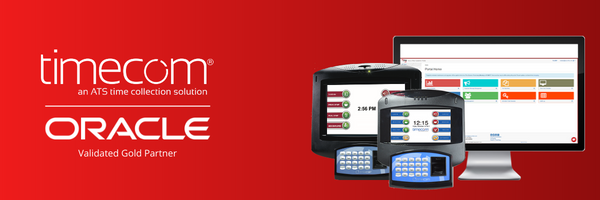Employee attendance policy violations are an inevitable part of any company. These instances are bound to occur, whether because of misunderstandings or unforeseen circumstances. One reason your company brought in Oracle Time and Labor is to help enforce attendance policies and reduce absenteeism.
Your company's success relies on good policies and an Oracle-integrated time and attendance system to enforce them.
Here are five important tips for managing employee attendance policies to lower absenteeism, improve productivity and boost morale.

Clear Attendance Policy
Include a clear attendance policy written in simple language in the employee handbook. Make the handbook widely available, both as a hard copy manual and through digital access.
Your employee attendance policy should include all your attendance expectations and requirements. Review it regularly to remove any conflicts, confusion, or loopholes within the organization.
Targeted Training
Train new hires in all the standards and business processes surrounding employee absence and attendance during their on-boarding. They should know what qualifies as excessive absenteeism and how to submit a PTO request.
If you update your employee attendance policy, retrain all employees on the changes.
Automate and Integrate with the Right Tools
Automated time tracking is the quickest and most unbiased way to gain insight on attendance issues. When employees clock in and out every day, the time clock documents their work hours. Thus, there’s no room for human error or bias when documenting an attendance issue.
One example is an Oracle integration service with ATS’s Timecom tracking system. When employees punch in and out at the time clock, Timecom collects and sends that data to Oracle Time and Labor, making it more reliable and effective than web and mobile applications.
Timecom's data mapping with Oracle Time and Labor validates all work hour data sent to your payroll and HR teams, by providing an accurate and objective attendance record to their Oracle premise applications.
When you connect your applications, managers can see trends and standout employees in almost real time. They can deal with attendance problems early, using a positive approach to solve the issue instead of being confrontational.
With attendance data and Oracle integration cloud services, managers can easily review employee schedule adherence.
Reward Loyalty
Don’t overlook employees with good attendance records. Employees with good attendance records are the heartbeat of your organization; you should acknowledge their record.
Empower managers, through your attendance management policy, to reward employees with strong attendance records. The positive employee engagement motivates good attendance and improves productivity across the company.
Apply Employee Attendance Policies Consistently
Managers and HR staff must apply employee attendance policies consistently for them to be effective. If employees sense any preferential treatment or unfair punishment, their morale and productivity will go down. Inconsistent application may also open the company up to legal complaints.
Investigate every instance of unexcused absence or excessive absenteeism on its own merits. However, the policy itself must apply to everyone equally. This consistency is a visual builder for teams to understand attendance expectations and guides them towards good habits.
Unlocking Employee Potential with Clear Policies and Applications Integration
A clear employee attendance policy fosters a workplace of content, motivated employees. Automating time tracking with an Oracle integrated time clock plays a pivotal role in managing employee attendance. With detailed, accurate attendance data, managers and HR teams can consistently apply the policy and proactively address excessive absenteeism.
Use these tips to effectively use your Oracle-integrated systems to enforce employee attendance policies, thus promoting accountability and productivity.
Get in touch with our solution consultants today for all your timekeeping needs for Oracle Time and Labor.



